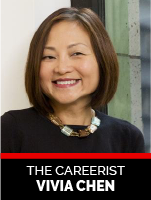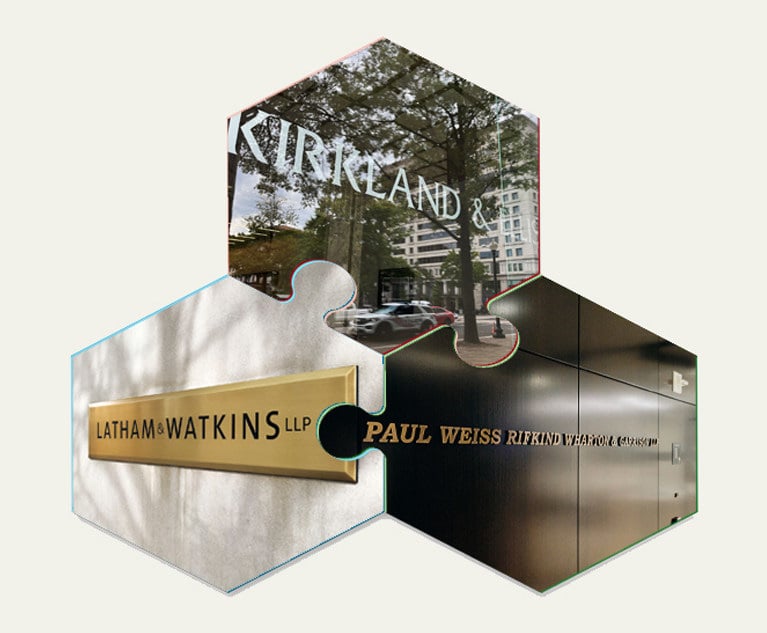Is Chambers Ignoring Women?
The industry's gold standard directory remains stubbornly white and male in its coveted lawyer rankings, particularly in the most elite practice sectors.
September 04, 2019 at 02:00 PM
4 minute read
 Credit: Creativa Images/Shutterstock.com
Credit: Creativa Images/Shutterstock.com
"This is outrageous!" says a New York headhunter who calls me to vent. "Why is it always the same old guard?" A week later, I hear from another industry insider: "It's impossible that there aren't enough women with the reputation and skill to be included."
They're referring to the Chambers and Partners ranking of U.S. lawyers. And surprise, surprise, women are woefully underrepresented on the list.
Widely regarded as the industry's gold standard directory, Chambers remains stubbornly white and male in its coveted lawyer rankings, particularly in the most elite practice sectors. The paucity of female names is another indication of how difficult it is for women to get recognition in Big Law.
In 2019, women made up only 13% of ranked lawyers in the New York M&A market, according to Chambers. Only one woman—Faiza Saeed of Cravath, Swaine & Moore—made it to band 1, the top rank. And there are no women in the "senior statespeople and eminent practitioners" category.
Women are also scarce in the general commercial litigation category, making up just over 7% of recognized litigators in the New York market. And none of those women was ranked higher than band 4 (out of five). In securities litigation, the percentage of women is stuck in the teens. (Even Sandra Goldstein, whom Kirkland & Ellis wooed from Cravath for a reported $11 million, is only in band 3.)
 Chambers editor-in-chief Rieta Ghosh acknowledges the imbalance. She points to "institutional difficulties"—law firm politics and the preponderance of men among general counsel who advise Chambers—as key hurdles.
Chambers editor-in-chief Rieta Ghosh acknowledges the imbalance. She points to "institutional difficulties"—law firm politics and the preponderance of men among general counsel who advise Chambers—as key hurdles.
Women seem to be disadvantaged, starting with their own firms. "The process is competitive and firms can only submit a certain number of candidates," says a former Big Law marketing head. "I've found that men are the ones lobbying to get into Chambers."
Several women I spoke to seem remarkably uninformed about Chambers. One female partner says she doesn't know how lawyers get nominated, or if clients pay attention. Perhaps women should be concerned. "It can be very helpful to be listed; it counts as an additional credential," says the former marketing head. "If a client is trying to choose a lawyer in an unfamiliar jurisdiction, Chambers is a top source."
Women could use the bragging rights of a Chambers rating when pitching to clients or eyeing a lateral move. "Chambers' endorsement would be a meaningful boost for hundreds of women partners who deserve to be recognized as top-tier practitioners," says consultant Jason Costa.
Ghosh says Chambers is on the stick. It's hired a diversity inclusion chief (Dee Sekar) to oversee gender and diversity issues inside and outside of the company. And it mandates that analysts interview equal numbers of male and female partners. "We specifically reached out to female partners where male partners had been suggested to us by law firms," Ghosh says. "We also kept a record of those firms who attempted to circumvent this process."
Chambers has to cajole firms to keep women and minorities in mind. Ghosh says Chambers is "raising law firm diversity as a key issue in every one of the managing partner and heads of department meetings that we conduct."
Perhaps Chambers will be effective. "Chambers is an important voice in the market, so when Chambers gets this right, it is going to make a huge difference," Costa says.
Let's hope it has better leverage than the rest of us.
Contact Vivia Chen at [email protected] or @lawcareerist.
This content has been archived. It is available through our partners, LexisNexis® and Bloomberg Law.
To view this content, please continue to their sites.
Not a Lexis Subscriber?
Subscribe Now
Not a Bloomberg Law Subscriber?
Subscribe Now
NOT FOR REPRINT
© 2025 ALM Global, LLC, All Rights Reserved. Request academic re-use from www.copyright.com. All other uses, submit a request to [email protected]. For more information visit Asset & Logo Licensing.
You Might Like
View All

Change Is Coming With the New Trump Era. For Big Law, Change Is Already Here
6 minute read

Trending Stories
- 1Uber Files RICO Suit Against Plaintiff-Side Firms Alleging Fraudulent Injury Claims
- 2The Law Firm Disrupted: Scrutinizing the Elephant More Than the Mouse
- 3Inherent Diminished Value Damages Unavailable to 3rd-Party Claimants, Court Says
- 4Pa. Defense Firm Sued by Client Over Ex-Eagles Player's $43.5M Med Mal Win
- 5Losses Mount at Morris Manning, but Departing Ex-Chair Stays Bullish About His Old Firm's Future
Who Got The Work
J. Brugh Lower of Gibbons has entered an appearance for industrial equipment supplier Devco Corporation in a pending trademark infringement lawsuit. The suit, accusing the defendant of selling knock-off Graco products, was filed Dec. 18 in New Jersey District Court by Rivkin Radler on behalf of Graco Inc. and Graco Minnesota. The case, assigned to U.S. District Judge Zahid N. Quraishi, is 3:24-cv-11294, Graco Inc. et al v. Devco Corporation.
Who Got The Work
Rebecca Maller-Stein and Kent A. Yalowitz of Arnold & Porter Kaye Scholer have entered their appearances for Hanaco Venture Capital and its executives, Lior Prosor and David Frankel, in a pending securities lawsuit. The action, filed on Dec. 24 in New York Southern District Court by Zell, Aron & Co. on behalf of Goldeneye Advisors, accuses the defendants of negligently and fraudulently managing the plaintiff's $1 million investment. The case, assigned to U.S. District Judge Vernon S. Broderick, is 1:24-cv-09918, Goldeneye Advisors, LLC v. Hanaco Venture Capital, Ltd. et al.
Who Got The Work
Attorneys from A&O Shearman has stepped in as defense counsel for Toronto-Dominion Bank and other defendants in a pending securities class action. The suit, filed Dec. 11 in New York Southern District Court by Bleichmar Fonti & Auld, accuses the defendants of concealing the bank's 'pervasive' deficiencies in regards to its compliance with the Bank Secrecy Act and the quality of its anti-money laundering controls. The case, assigned to U.S. District Judge Arun Subramanian, is 1:24-cv-09445, Gonzalez v. The Toronto-Dominion Bank et al.
Who Got The Work
Crown Castle International, a Pennsylvania company providing shared communications infrastructure, has turned to Luke D. Wolf of Gordon Rees Scully Mansukhani to fend off a pending breach-of-contract lawsuit. The court action, filed Nov. 25 in Michigan Eastern District Court by Hooper Hathaway PC on behalf of The Town Residences LLC, accuses Crown Castle of failing to transfer approximately $30,000 in utility payments from T-Mobile in breach of a roof-top lease and assignment agreement. The case, assigned to U.S. District Judge Susan K. Declercq, is 2:24-cv-13131, The Town Residences LLC v. T-Mobile US, Inc. et al.
Who Got The Work
Wilfred P. Coronato and Daniel M. Schwartz of McCarter & English have stepped in as defense counsel to Electrolux Home Products Inc. in a pending product liability lawsuit. The court action, filed Nov. 26 in New York Eastern District Court by Poulos Lopiccolo PC and Nagel Rice LLP on behalf of David Stern, alleges that the defendant's refrigerators’ drawers and shelving repeatedly break and fall apart within months after purchase. The case, assigned to U.S. District Judge Joan M. Azrack, is 2:24-cv-08204, Stern v. Electrolux Home Products, Inc.
Featured Firms
Law Offices of Gary Martin Hays & Associates, P.C.
(470) 294-1674
Law Offices of Mark E. Salomone
(857) 444-6468
Smith & Hassler
(713) 739-1250










